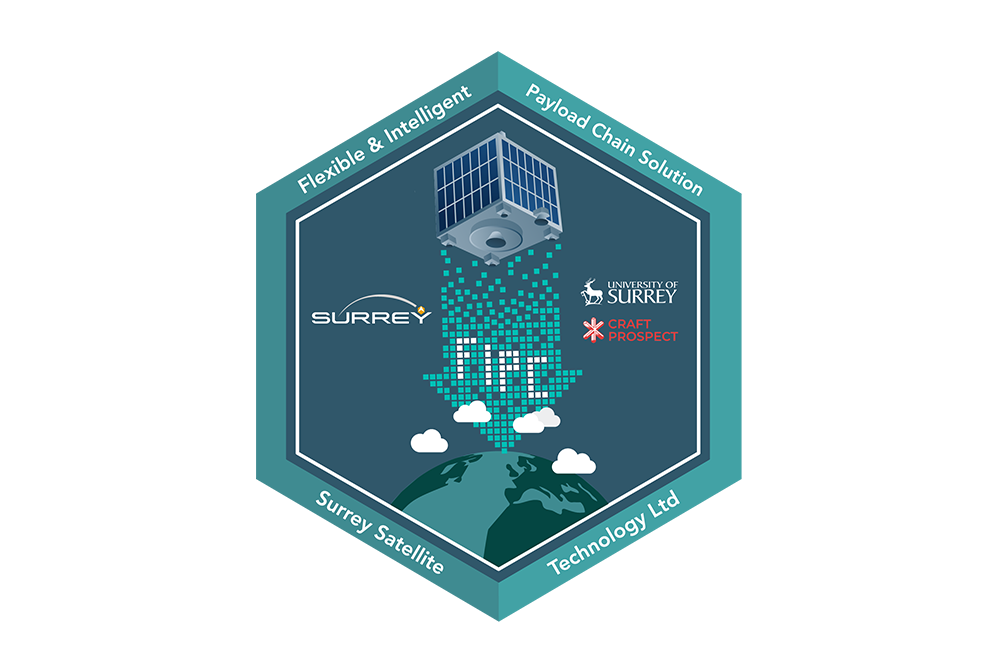Surrey Satellite Technology Ltd (SSTL) has secured European Space Agency InCubed programme financial and technical support to demonstrate a high throughput, flexible and intelligent payload downlink chain for small Earth Observation satellites.
Currently advanced and innovative satellite imaging payloads are producing data with ever increasing dimensionality, volume and rates which can exceed small satellite’s downlink bandwidth.

To tackle the onboard data bottleneck SSTL is leading a consortium that includes the University of Surrey and Craft Prospect Limited to develop and demonstrate new capabilities for SSTL’s Flexible & Intelligent Payload Chain (FIPC) solution.
The FIPC’s advanced hardware architecture enables a new intelligent and adaptive data downlink and a state-of-the-art framework for software defined onboard data processing to realise a payload chain capable of handling the throughput rates of future small Earth Observation satellites.
The framework enables processing applications which include data calibration and image compression to Machine Learning (ML) for image classification and information extraction towards greater satellite autonomy.
Phil Brownnett, SSTL’s Managing Director said “The FIPC solution will significantly improve the capabilities of small earth observation satellites by increasing data rates to match the capacity of the onboard imager system. This will boost both the volume and the complexity of the data that can be downlinked on a single satellite pass – a step-up in capability that will match our customer’s business plans and ambitions.”
Carlos Urbina Ortega, ESA Technical Officer for this activity, added “We envisage substantial benefits from this InCubed investment, not least because of the system flexibility and computational power that the FIPC affords. Capabilities such as onboard ML acceleration for enhanced data management and services, together with in-orbit application reconfiguration, will ensure that small-satellite missions remain agile and end-user focused.”
SSTL, Craft Prospect Limited and the University of Surrey will work together on the FIPC solution and onboard processing applications and, following the design phases, the consortium will demonstrate and evaluate the capabilities on a flight representative testbed.
The FIPC is more than just a classical space unit; the software defined onboard pipeline and applications development framework is a critical component enabling end-user tailored functionality, and SSTL will develop the framework which enables third-party developers or customers to develop and deploy novel and disruptive mission designs.
Software will be uploadable in-orbit for further flexibility over the mission’s lifetime.
Dr Chris Bridges, Reader at the University of Surrey said “It is exciting to consider how to bring relevant AI methods to complex compression and information extraction problems on real space hardware.” The University of Surrey’s work is jointly carried out by the AI Institute and Surrey Space Centre.
Dr Murray Ireland, Craft Prospect’s Autonomy Lead said “The FIPC project is an excellent opportunity to further develop our AI toolbox, a suite of value-adding data processing and machine learning components, and test it against real customer requirements within the FIPC solution. The ability to intelligently inspect, process, and manage data on-board small satellites will provide real value to end users by prioritising the data they really need and delivering it to them as meaningful data products.”
Beth Greenaway, Head of Earth Observation and Climate at the UK Space Agency, said: “The UK has world-leading satellite Earth observation capability, with companies like SSTL playing an important role in designing missions that help us understand climate change and tackle global challenges. This state-of-the-art technology, funded by the UK Space Agency through our ESA membership, harnesses the power of AI to help solve the growing problem of data exceeding a satellite’s downlink bandwidth. It will be invaluable for scientists who rely on this data for their work.”
